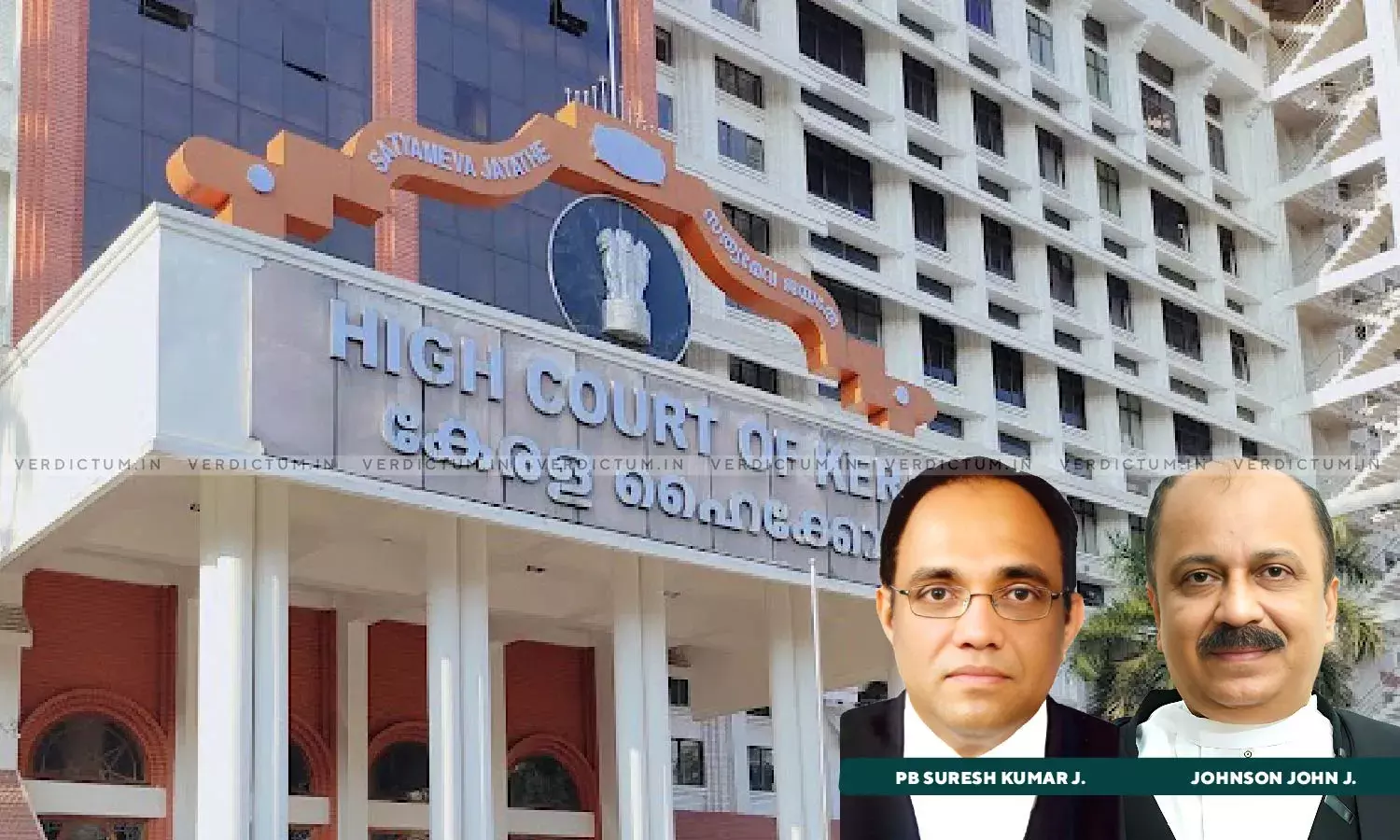1st Proviso To Section 11(3) Of Kerala Rent Control Act Not Apply If Landlord Obtains Another Building After Institution Of Eviction Petition: Kerala HC

The Kerala High Court held that the first proviso to Section 11(3) of the Kerala Buildings (Lease and Rent Control) Act, 1965, does not apply in cases where the landlord acquired another building after the institution of eviction petition.
This proviso stipulates that the Rent Control Court cannot grant an eviction order against the tenant if the landlord owns another building in the same city, town, or village.
The Bench comprising Justice P.B Suresh Kumar and Justice Johnson John observed, “Needless to say, as noted, the first proviso to Section 11(3) does not apply to situations where the landlord obtains vacant possession of a building after the institution of the eviction petition”.
Advocate Jacob P. Alex appeared for the Petitioner and Advocate Jacob Mathew Manalil appeared for the Respondent.
The tenanted premises was a portion of the ground floor of a three-storeyed building which was being used by the tenant as a showroom for his crockery business. The tenancy arrangement commenced in the year 1997. Earlier, the tenant was also using the second floor of the building as a godown to keep the stock of the products handled by him. However, on a request made by the landlord, the tenant surrendered the second floor of the building and was using an adjacent building as his godown.
Meanwhile, the eviction petition was instituted. The case set out by the landlord in the eviction petition was that he needs the premises for establishing a computer-related business in which he is proficient and for establishing a dental clinic for his wife who is a Dentist. The Petitioner was the tenant in eviction proceedings under Section 11(3) of the Kerala Buildings (Lease and Rent Control) Act (Act). The Rent Control Court (RC Court) ordered eviction, and the Appellate Authority affirmed the decision of the Rent Control Court. Aggrieved, the tenant approached the High Court by way of Revision Petition challenging the impugned order.
The Court framed the following issue: “Whether the first proviso to Section 11(3) of the Act can be pressed into service in cases where a landlord obtains another building after the institution of the eviction petition”.
The Bench reiterated that if a tenant can prove that the landlord's need for the premises has changed due to subsequent events, the Court including the appellate court, must consider, evaluate, and rule on these events. However, the Bench emphasized that the subsequent events must be significant enough to completely negate the landlord's original need.
“What is discernible from the decisions aforesaid is that if the subsequent events are of such a nature and of such a dimension that the need propounded by the petitioning party would be completely eclipsed by the subsequent event, the same is one which will have a bearing on the right to relief claimed by that party and the subsequent event, therefore should certainly be taken note of by the authorities and if necessary, mould the relief suitably so that it is tailored to the situation that obtains on the date the relief is actually granted”, the Bench noted.
Furthermore, the Court observed that the landlord's failure to occupy the first floor of the building which fell vacant during the pendency of the appeal, was not one that would eclipse the need propounded by the landlord. The Court noted that the need still subsisted even after the said event inasmuch as the landlord had not made use of the first floor of the building or any other premises for the needs set out in the eviction petition. The Bench observed that the landlord's bona fides must be decided as of the date of institution of the proceedings and that a subsequent event will not affect the bona fides of the need.
The Court observed that the first proviso to Section 11(3) of the Act cannot be pressed into service in cases where a landlord obtains another building after the institution of the eviction petition. The first proviso only applies where the landlord has another building in his possession as of the date of institution of the eviction petition. This is because the first proviso is intended to ensure that landlords do not evict tenants unless they have a genuine need for the premises.
The Bench further clarified that if a landlord obtains another building after the institution of the eviction petition, this does not mean that he no longer has a need for the premises. Therefore, the first proviso does not apply in these cases.
Additionally, the Bench noted that a landlord who rents out different premises to different tenants has the option to seek eviction of a premises which is convenient for him for the purpose the eviction is sought and the tenant cannot have a say at all on that matter. The Bench observed that a landlord is not obligated to occupy premises that fell vacant during the pendency of the rent control proceedings and can instead rent out the premises for better rent.
Accordingly, the Court dismissed the Petition and directed the tenant to vacate the possession within six months from the date of the order.
Cause Title: Lalu Mathew v Bino Alexander (2023:KER:74751)

